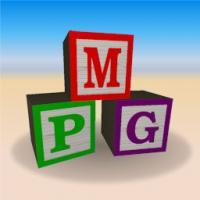Quote:
Original post by Gage64
Quote:
Original post by Jarrod1937
If you're worried about having to reinstall windows, then just keep one partition. If windows ever craps out of you, you can simply do a windows repair. Or you can do a complete reinstall of windows and simply not delete and reformat the drive (no one says you have to), as you can skip the format option and install windows on an existing partition.
But can't there be a situation where reinstalling Windows won't be enough and I'll have to reformat? In that case, if I'll have only one partition I'll lose all my data.
Yes, there is one situation, if something like your partition table, or the partition itself gets corrupted. But generally, in both of those situations, simply having two separate partitions will not save you/ Usually if one gets corrupted so will the other. However, generally data recovery for a damaged partition is quite easy, if the damage is not drive wide.
Quote:
Quote:
if you create 1 partition, and make it large enough...
But if I create one partition, I'm just going to use the whole disk space for it...
Why would I want to create only one partition and make it smaller that the entire disk? The remaining space will just be unused.
I believe you misunderstood me. You stated that you want to create two partitions, one for the os and one for your programs/data, right? If you create one for your OS, of say 40 GiB in size, the partition will in essence be reserving 40 gigs from the outside in, for the OS. Now, if you create your Programs partition, it will create a reserved space from the remaining parts of the drive. This is effectively forcing your programs and all subsequent data to be stored in a less than optimal area of the platter, as the more you get closer to the spindle the slower the angular velocity is, and the slower throughput and access time performance will get.
The thing is, is that if you create 1 single partition, you're then placing your OS in the best position, then the programs in the second best, then the data last, in terms of their arrangement on the platters. This is a more optimal arrangement, because your programs can then operate on the same platter area that would have been reserved for the os (but more than likely not used). The key to good performance is to get all your data arranged, in a hierarchical fashion, on the disk platters, from the outside in, in order of importance. If you create an overly large partition, then you're causing your os to reserve more space than it needs, and forcing your programs to be in a slower area.
Although, this is an overly technical explanation of it. You can use two separate partitions if you want, if you're that worried about data loss from loosing a partition, but it just may not e the most optimal setup.
-------------------------Only a fool claims himself an expert









